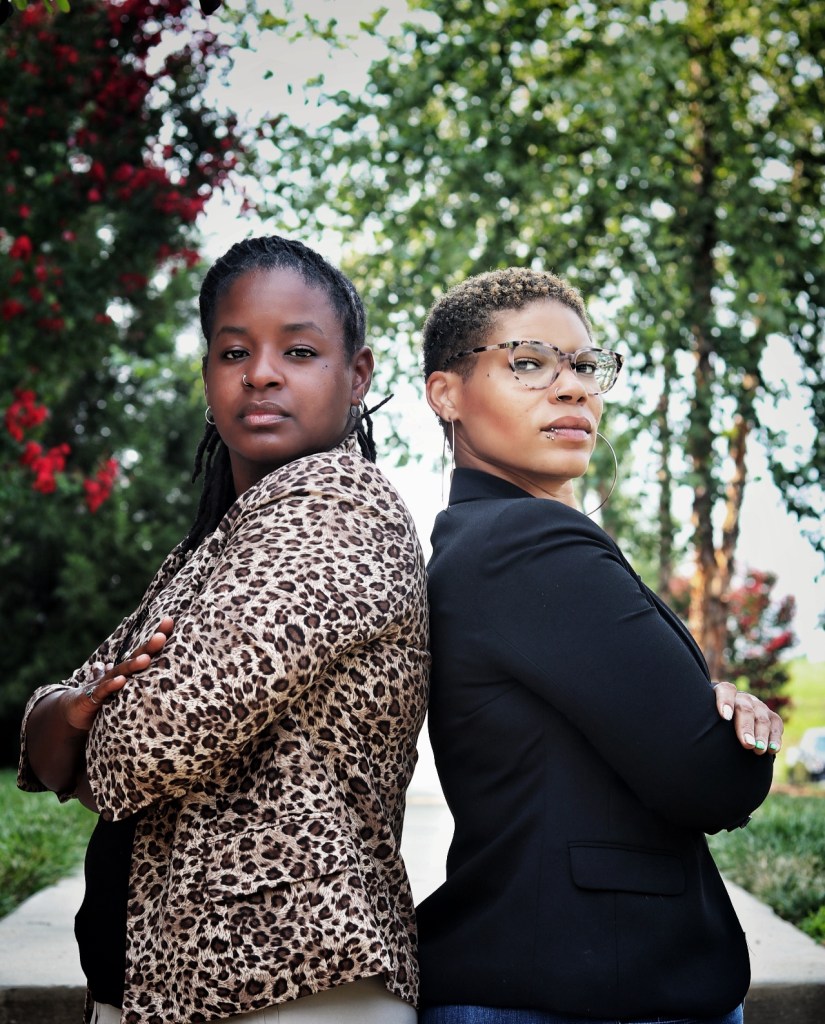Unless you’ve been living under a rock, we’re sure you’ve noticed the tidal wave of resignations that’s been happening around the nation over the last several months.
Many Black creatives have been a part of this group—and rightfully so.
For decades, unaddressed micro-aggressions, burnout, lower wages, high stress, lack of flexibility and wavering support are just some of the issues Black people have had to deal with in a normal workday. Then, once the pandemic pulled up and shined a blaring light on just how frustrating these spaces can be, Black innovation sprung into overdrive, and creatives started to step out to forge their own pathways to success.
I would go home stressed, in tears and beyond tired.
Dubbed “The Great Resignation” (a term coined by Texas A&M University organizational psychologist Anthony Klotz), American workers have been chucking the deuces to their employers in droves since the pandemic hit.
According to a U.S. Department of Labor report, a record $4.5 million people—about three percent of the U.S. workforce—voluntarily quit their jobs in November 2021. At the top of this number are Black workers (Hispanics are at a close second) who left work last year to start their own businesses at rates higher than any other race. Data from the Kaufman Foundation also found that Black people accounted for one in six new entrepreneurs last year. An average of 380 Black adults became entrepreneurs per every 100,000, compared to 240 per 100,000 the year prior.
With the data in front of us, it’s safe to assume that a paradigm shift is happening. A long-overdue liberation for Black workers is taking place, and creatives like Ashley Day of Graffiti Panda are taking full advantage of this opportunity.
As a banking professional, Ashley was no stranger to a high-energy work environment, though the overwhelming increase in stress due to the pandemic took it to another level.
“My co-workers and I were split into two teams to work half-staff. Phones were ringing off the hook, and we had a line of customers that circled the building every day,” Ashley told THE BLOCK.

“I would go home stressed, in tears and beyond tired. Then, after much prayer and preparation, I walked into my branch manager’s office, put in my two-week notice and didn’t regret it. God has blessed me to experience accomplishments and people that I don’t believe I would have if I had stayed.”
Zel Pardo and Leah Young say their “big quit” was spearheaded by workplace frustrations that began affecting their mental wellness. Leah, a professional baker in a natural foods store, loved what she did but never felt valued by leadership for her work.
“The disrespect got so bad that when my boss did my morning rounds, I recognized that she would speak to everyone but me,” Young said.

Zel was also stressed as constant work demands, lackluster leadership, required overtime and parenting during a pandemic laid heavy on her shoulders in 2020.
“I wanted more control of my life, my time and most importantly, my income. It was time to go,” she recalled. “I knew that, but I was afraid. While out of work on short-term disability, I began to question what my next steps were and how I could be of service to others.”
Less than a month later, a sweet message from an Instagram follower helped her change perspective.
Together, Zel and Leah, her partner, co-founded IMPACTheCulture. To date, the organization has served over 150 families and put money back into the community while helping others find their footing through financial independence.
“We are excited to be the people in our family who change the narrative and give even more value to our last names,” Leah said.
The truth of the matter is unless more workplaces commit to creating work environments that are safe, healthy and harmonious for all of their employees, the exodus of Black creatives likely won’t slow down.
If you find yourself in the wave, remember that—whether leaving to find a new job or deciding to work for yourself—it’s never selfish to honor your needs and protect your peace both on and off the clock.




